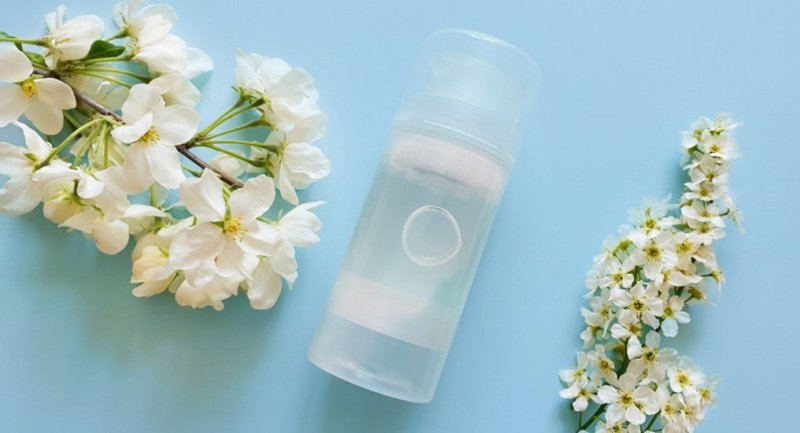Is lube safe during pregnancy?
Layan Alrahmani, M.D.
Medically reviewed by Layan Alrahmani, M.D., ob-gyn, MFM

A bottle of lube on a blue background and surrounded by flowers
Photo credit: iStock.com / Anastasia Burlakova
Yes, it's safe to use lube during pregnancy. Your cervix is tightly closed, so there's no danger of the lubricant reaching your baby. A thick clump of mucus called the mucus plug blocks the entrance to your cervix. It forms a barrier that prevents substances, including lubricant and germs, from getting inside. (You'll lose this plug shortly before you deliver.)
It's usually safe to have sex while you're pregnant. Sex is an important (and fun!) part of any intimate relationship, and it won't harm your baby, who is protected by the amniotic fluid inside your uterus. Just check with your healthcare provider to make sure you have the all-clear for sex.
You may find that you don't even need lube while you're pregnant because extra vaginal discharge during pregnancy may keep you pretty moist. That extra discharge is thanks to changes in your cervix and boosts in estrogen, and it serves another useful purpose: It prevents the germs that cause infections from slipping into your uterus. (Remember that every woman is different, though, and some women have more natural lubrication than others during pregnancy.)
Should I use lube during pregnancy?
You might want to use lube while pregnant if you're experiencing vaginal dryness. And if you are a little dry, you're far from alone. In one study, nearly one-third of women said they had reduced natural lubrication during pregnancy. The dryness is likely because your hormones (including progesterone) are in a state of flux throughout these nine months.
Even if you aren't experiencing any vaginal dryness, you still might just prefer the extra slipperiness that pregnancy lube provides. A lubricant will cut down on friction, making sex more comfortable – and sometimes even more pleasurable – for both you and your partner.
What's the best pregnancy-safe lube?
The most pregnancy-friendly lubricants are the water-based kinds. These lubes are water-soluble, which means they dissolve in water. They're safer for you and your baby, typically because they contain fewer chemicals than other lubes. Added bonuses: They have a smooth, not sticky feel, and wash off easily for a quick clean-up (ideal if you're ready to snooze immediately after sex).
You might also ask your partner to use a lubricated condom, even though you don't need the pregnancy protection. A condom is also a good option if you're not in a committed relationship and you want to have some extra protection against sexually transmitted infections (STIs) your partner might pass to you during sex, which in turn you could potentially pass to your baby.
Lube ingredients to avoid during pregnancy sex
It's a good idea to avoid lubes that contain oil, like baby oil and petroleum jelly. Oil-based lubricants can be more irritating and can damage latex condoms to the point where they break – and a broken condom could put you at risk for sexually transmitted infections (STIs) such as herpes, gonorrhea, HIV, and syphilis, which can be risky for you and your baby.
Here are a few other lube ingredients to avoid because they can cause irritation or infections:
Warming products
Flavorings
Glycerin
Fragrances
Parabens
Make sure to keep in touch with your doctor throughout your pregnancy. Let your healthcare provider know about any problems, including changes in vaginal discharge, pain during sex, and a fever or other signs of a possible lube-related infection.
Browse our newest items from our mothers and baby store: Hands and Toes store's collections:
Maternity | Baby Care and Safety | Baby Feeding | Baby Essentials




